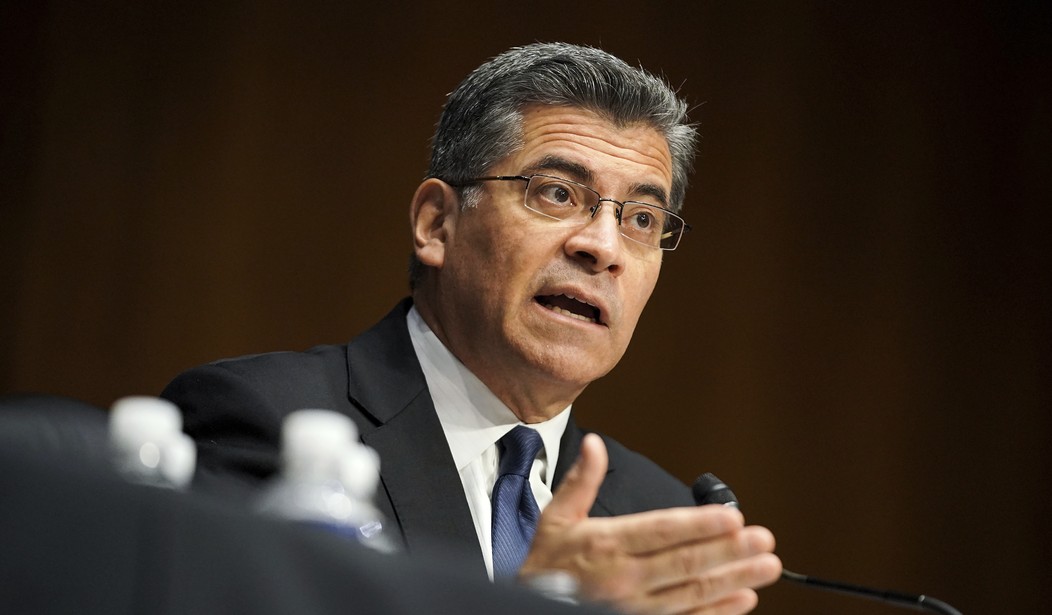The Biden administration’s improper implementation of the “No Surprises Act” is putting tens of thousands of medical practices in jeopardy of imminent financial collapse. This would not only have a disastrous impact on patient care access, quality, and cost, but also put Washington on the hook for hundreds of billions of dollars in damages. The government will be liable for these practices’ destruction, as they are being unlawfully harmed by unelected officials acting beyond their authority.
Over the past several weeks, HHS Sec. Xavier Becerra was on Capitol Hill defending his department’s annual budget. During his testimonies, he was pressed by members of both parties, in both the House and Senate, on why HHS’ implementation of the law has been a failure. Like the crisis with Silicon Valley Bank, this is an emergency, and it needs to be fixed immediately to avoid a widespread contagion in the healthcare sector.
In December 2020, Congress passed this Act to prevent patients from receiving medical bills from non-contracted medical providers with whom their private health plans had failed to reach adequate payment agreements. To solve this problem, medical providers – doctors, hospitals, ambulances, etc. – were required to hold patients harmless for anything above what the patient would have paid for an in-network service. If the provider and health insurance company could not come to a mutually satisfactory payment amount, Congress created a quick and fair independent dispute resolution (IDR) process.
This framework is based largely on the “baseball style arbitration” process first created in New York State in 2015. The New York process demonstrated that settlement of payment disputes could be done in a timely, accessible, and inexpensive manner. Because the state’s process was run efficiently and effectively, almost all disputes were negotiated between parties without going to IDR. Of note, many independent medical practices work without contracts with many private insurance companies because they lack the size to negotiate acceptable rates with them.
Recommended
While the No Surprises Act took effect in January 2022, it’s now April 2023, and federal regulators have hardly processed any claims. For the few claims they have processed, they have not required health plans to make payments when they lose in IDR. It is no surprise that in 2022, health insurance companies enjoyed record profits, at a time when health insurance premiums were also at all-time highs. It is also no surprise that medical practices are now under severe financial strain – which has reached a breaking point.
Federal regulators have twice tried to direct the IDR’s accredited entities to give outsized consideration to the health plans’ self-determined median contracted rate, also known as the qualifying payment amount, or QPA. And a federal court in Texas has sided with doctors and hospitals in two consecutive cases, ruling that regulators had acted unlawfully, and that the IDR entity could not be told how to weight the data it received. Regulators have unlawfully allowed insurance companies to manipulate their “contracted rate” downward, and have unlawfully imposed an untenable $350 non-refundable “administrative fee” on providers. These actions have prompted two more lawsuits. Furthermore, regulators have routinely allowed insurers to escape IDR entirely by simply claiming, albeit falsely, that their case isn’t eligible.
Federal regulators were required by law to certify enough IDR entities and to make sure the IDR claims were processed within the required 30-day timeframe. They have not. Insurers were also required by law to make payments for IDR claims that they have lost, also within 30 days. Regulators have all but guaranteed that health plans will not comply with the law by imposing a $10,000 fine on providers for each and every violation of the law, but no penalty at all on insurers that violate the law. It is inconceivable that every national insurance carrier would simultaneously decide to violate multiple aspects of the new federal law if they were not given explicit permission to do so by federal regulators.
Legislators who worked on this law in a bipartisan, bicameral manner are understandably outraged. Oversight hearings are being planned in both the House and Senate. But we cannot wait for hearings. The good news is that, if the problem is fixed immediately, the cost to the federal government will be minimal and patients will still be able to keep seeing the medical practices on which they rely. The federal IDR process enshrined in the No Surprises Act must proceed immediately. Whether regulators or insurance companies like it or not, that’s the law of the land.
Andrew Langer is chairman and founder of the Institute for Regulatory Analysis and Engagement
























Join the conversation as a VIP Member